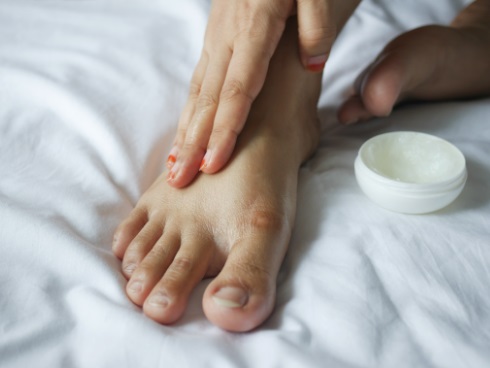Eczema is a common skin condition that affects so many people worldwide. It is a chronic inflammatory skin disease that causes red, itchy, and scaly patches on the skin and this condition can occur at any age, and to anyone. It can be a frustrating and embarrassing condition to deal with. In this article, we’ll explore the causes of eczema and various treatment options available for managing the symptoms.
Understanding Eczema: What Is It?
Eczema is a term that describes a group of skin conditions that cause inflammation, irritation, and itching. It is also known as atopic dermatitis and is the most common type of eczema. Eczema typically affects the face, neck, hands, and feet, but it can appear anywhere on the body.

What Causes Eczema?
The exact cause of eczema is unknown, but experts believe that a combination of genetic and environmental factors can trigger the condition. Some of the factors that can contribute to eczema include:
Genetics
Research has shown that eczema tends to run in families, and people who have a family history of eczema, asthma, or hay fever are more likely to develop the condition.
Environmental Factors
Environmental factors, such as exposure to allergens, irritants, and pollutants, can trigger eczema flare-ups. Common triggers include pet dander, dust mites, pollen, mold, tobacco smoke, and harsh chemicals.
Immune System Dysfunction
Eczema is believed to be caused by an overactive immune system that reacts to harmless substances as if they were dangerous. This reaction causes inflammation, which leads to itching, redness, and other symptoms.
What Can I Treat Eczema With?
There are various treatment options available for managing eczema symptoms, including:
Topical Corticosteroids
Topical corticosteroids are medications that reduce inflammation and itching. They are available in different strengths and can be applied directly to the affected areas.
Moisturizers
Keeping the skin moisturized can help reduce the severity of eczema symptoms. Using a fragrance-free, hypoallergenic moisturizer regularly can help soothe the skin and prevent dryness.
CBD Cream
There are many people who prefer to use a more natural topical like cbd cream for eczema. Typically they will have other additives like honey or oatmeal.
Antihistamines
Antihistamines are medications that block the effects of histamine, a chemical that is released during an allergic reaction. They can help relieve itching and prevent eczema flare-ups.
Immunomodulators
Immunomodulators are medications that suppress the immune system, reducing inflammation and preventing eczema flare-ups. They are typically used for more severe cases of eczema.
Light Therapy
Light therapy involves exposing the skin to ultraviolet light, which can reduce inflammation and itching. It is typically used for moderate to severe cases of eczema.
Conclusion
Eczema can be a challenging condition to manage, but with the right treatment, it can be controlled. Identifying and avoiding triggers, keeping the skin moisturized, and using medications as directed by a healthcare provider can all help manage eczema symptoms. It’s essential to work closely with a healthcare provider to develop a personalized treatment plan that works for you.
FAQs
- Can eczema be cured? No, there is currently no cure for eczema. However, symptoms can be managed with proper treatment.
- Is eczema contagious? No, eczema is not contagious.
- Can stress cause eczema? Stress can be a trigger for eczema flare-ups in some people.
- Can diet affect eczema? Some foods may trigger eczema flare-ups in some people. Keeping a food diary can help identify potential triggers
- Can eczema affect mental health? Yes, eczema can have a significant impact on mental health, causing anxiety, depression, and social isolation.
Living with eczema can be a frustrating and emotionally challenging experience. The constant itching, discomfort, and embarrassment can take a toll on one’s emotional well-being. It can be especially difficult for children and young adults who may feel self-conscious about their appearance and struggle with social interactions.
Despite the challenges, it’s essential to maintain a positive outlook and seek support from family, friends, and healthcare providers. Learning how to manage eczema symptoms effectively can improve quality of life and reduce emotional stress.
In conclusion, eczema is a complex skin condition that can be triggered by a combination of genetic and environmental factors. Effective treatment options are available, including topical medications, moisturizers, antihistamines, immunomodulators, and light therapy. It’s essential to work closely with a healthcare provider to develop a personalized treatment plan that addresses individual needs.
